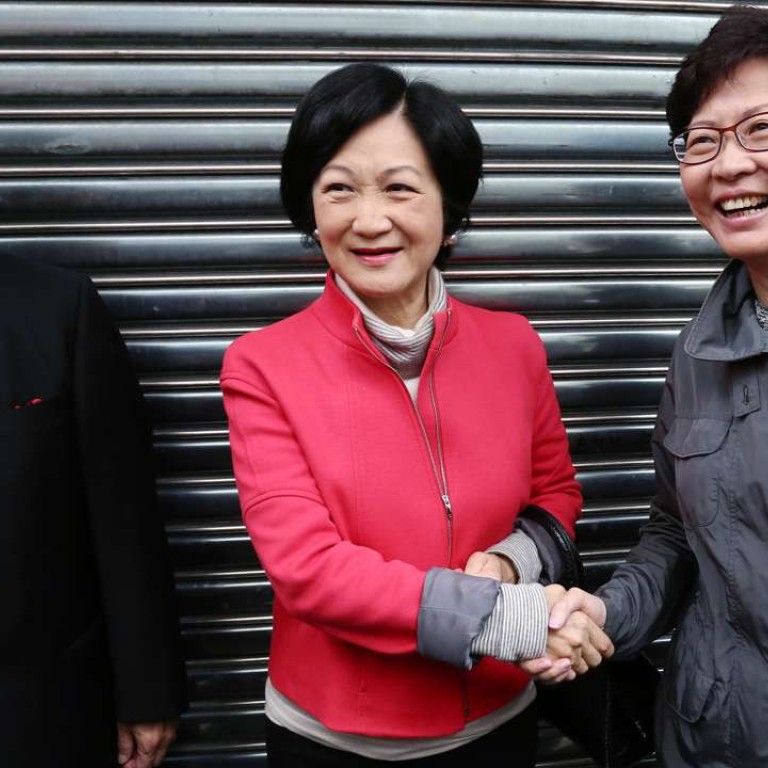
Hong Kong’s chief executive candidates have no choice but to bow to interest groups
Gary Cheung says the very nature of the race and an Election Committee stacked with Beijing loyalists and interest groups are why policy platforms of candidates appear so irrelevant
In November 2011, Leung Chun-ying and Henry Tang Ying-yen declared their candidacy for chief executive. In the next two months, the pair rolled out their manifestos on policy areas, setting the stage for vigorous debates in the run-up to the March 2012 election.
This time, with only seven weeks to go before the Election Committee picks the city’s next leader, there is a lack of serious debate on candidates’ platforms. On December 14, retired judge Woo Kwok-hing became the first contender to announce his election platform. Rival aspirant and former security chief Regina Ip Lau Suk-yee rolled out her manifesto the following day. But neither drew much media attention as their chances of winning are slim.
Watch: Retired judge Woo Kwok-hing throws his hat in the ring
Policy platforms do not make much difference in the small-circle election decided by the 1,194 members of the Election Committee
The apparent irrelevance of platforms is inconceivable in what is one of the tightest races for the top job since the handover. But this is attributable to the inconvenient truth that they do not make much difference in the small-circle election decided by the 1,194 members of the Election Committee. In the past few weeks, dozens of Beijing-friendly politicians and groups lined up to back Lam, citing her track record, even before she declared her manifesto, amid pro-Beijing newspapers’ extensive coverage of her candidacy and electioneering.
Carrie Lam may be Beijing’s choice, but Hong Kong still needs a fair leadership race
Yet both Lam and Ip later sidestepped questions on whether they would seek to reduce the number of seats reserved for the subsector in future chief executive elections, an idea backed by forces across the political spectrum and mulled by senior government officials in the consultation on electoral reform from 2014 to 2015. Lam only said it still played an important role as “demand for quality farming, fishery products and beautiful flowers is strong”. Don’t be surprised if the Federation of Trade Unions backs Lam even if she is unlikely to introduce standard working hours, a key demand of the pro-Beijing flagship.
Carrie Lam could face crisis if she wins CE race only with help of pro-Beijing camp, rival Regina Ip says

The “innovative” ideas put forward by three candidates during their meetings last week with the Heung Yee Kuk, which holds 26 seats, underscored how they have no choice but to cater to sectional interests if they want their support.
Heung Yee Kuk backs away from bloc vote for Carrie Lam in Hong Kong leadership race
Seven policy proposals for Hong Kong’s next chief executive
Ip proposed allowing villagers to build multi-storied small houses, a rehash of Henry Tang’s suggestion in 2012. We will see more “innovative” ideas before March 26, the day when our next chief leader is to be “selected”.
Gary Cheung is the Post’s political editor

